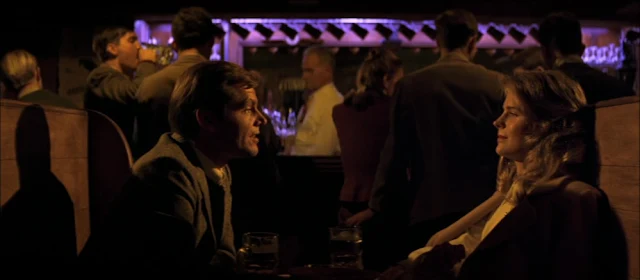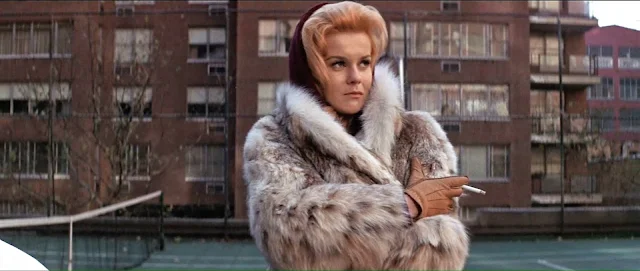 |
| Jessica Lange and Roy Scheider in All That Jazz |
Bob Fosse's All That Jazz has a valedictory feeling to it, and not just because it's about a man foreseeing his own death, which strikingly foreshadows that of Fosse himself. It also feels like one of the last films of the 1970s, a decade associated with young hotshot American filmmakers who were determined to go their own way and to craft movies filled with personal vision that didn't sugarcoat the material or pander and talk down to the audience. After them, the myth goes, came the deluge of movies made with a view to spawning sequels and franchises. That summary is oversimple, of course, but perhaps it does illuminate why a film like All That Jazz continues to fascinate viewers, despite its inherent messiness and occasional excessive self-indulgence. It's held together by Fosse's abundant mad energy and by a cunning, committed performance by Roy Scheider as the driven, workaholic, self-destructive Joe Gideon, whom only the most obtuse would deny is a warts-and-all self-portrait by Fosse. All That Jazz is usually classified as a musical, because of its elaborate production numbers, but it fits the genre only loosely. It's a bit like 42nd Street (Lloyd Bacon, 1933) in that it's a "backstage musical" with a serious undercurrent, although the undercurrent becomes a torrent in All That Jazz, and the music becomes an ironic counterpoint to the sardonic drama of the life and death of Joe Gideon.





























